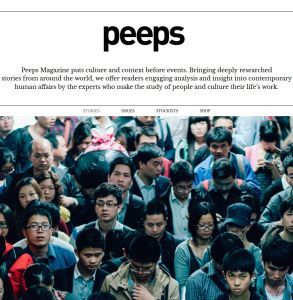
Read or listen offline
Amazon Kindle
automatisch generiertes Audio
1×
Melden Sie sich an, um die Audiozusammenfassung anzuhören.
automatisch generiertes Audio
Recommendation
The literal translation of the Chinese term diaosi is inappropriate to discuss here; suffice it to say that the insult emerged from Internet gaming obscurity. But now a majority of China’s young men proudly identify as diaosi. Based on personal conversations with these self-proclaimed losers, anthropologist Graham Candy’s article explains the phenomenon and what it teaches about Chinese society. getAbstract recommends this rich glimpse into Chinese culture to readers interested in modern masculinity, middle-class mediocrity, corruption, gaming and digital vigilantism.
Summary
About the Author
University of Toronto doctoral student Graham Candy is a Canadian anthropologist. He studies the effects of the Internet on modern social relations.
Learners who read this summary also read
Book
Article
Report

















Comment on this summary